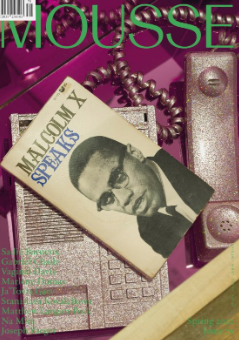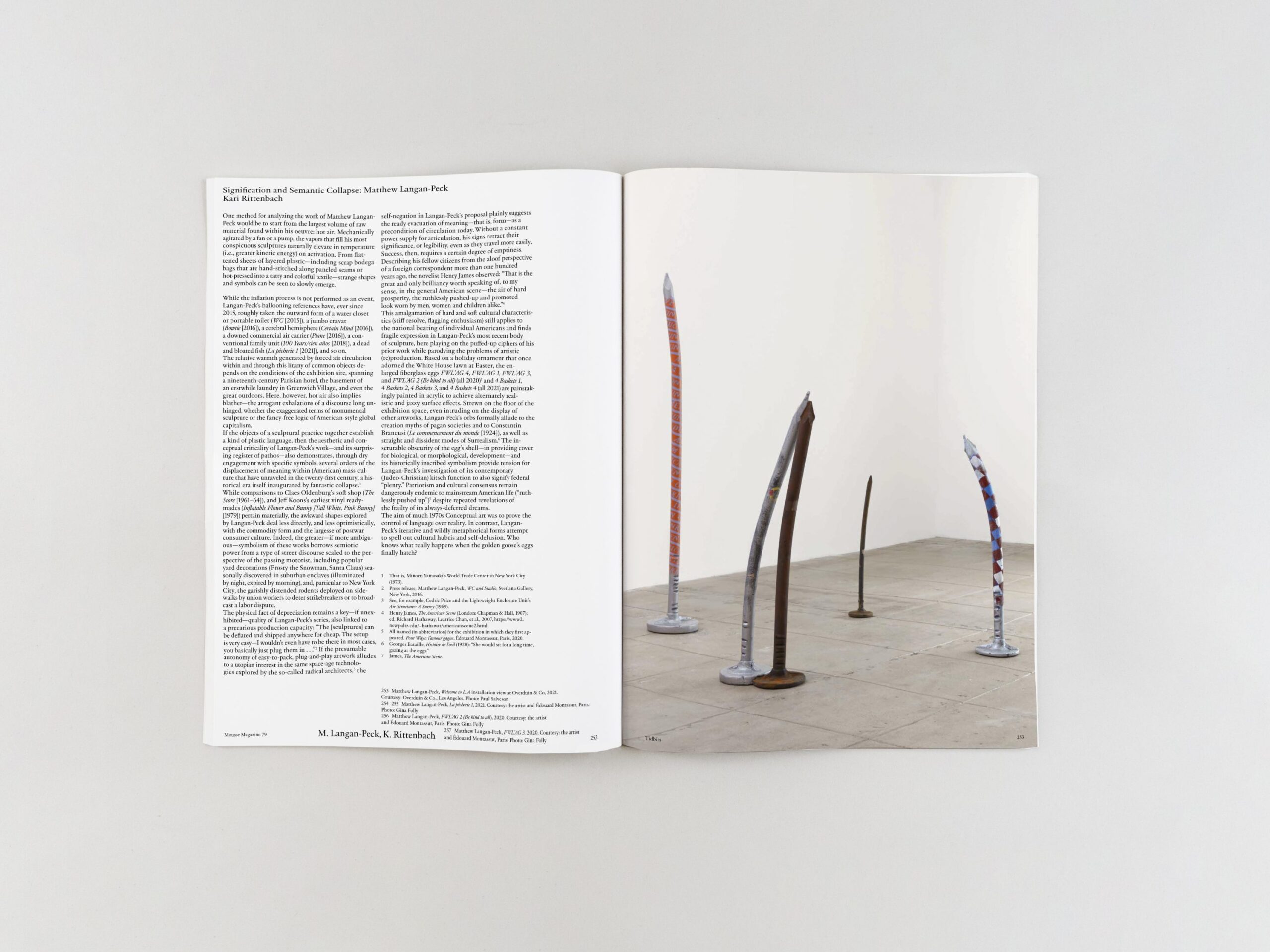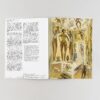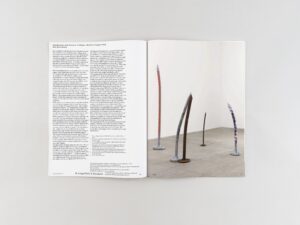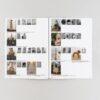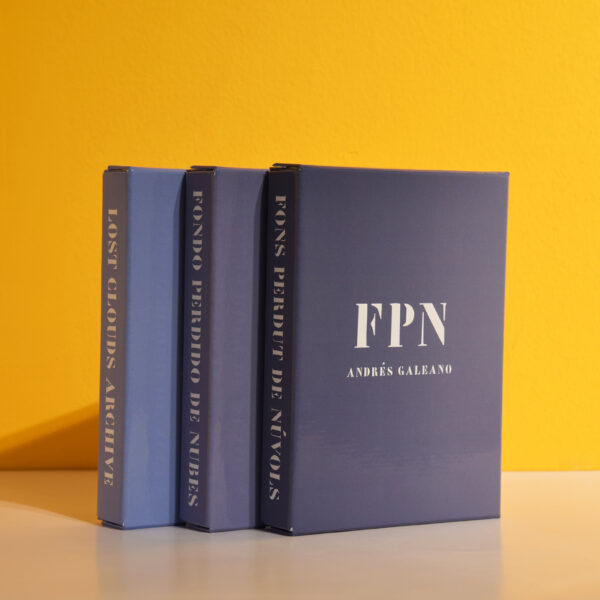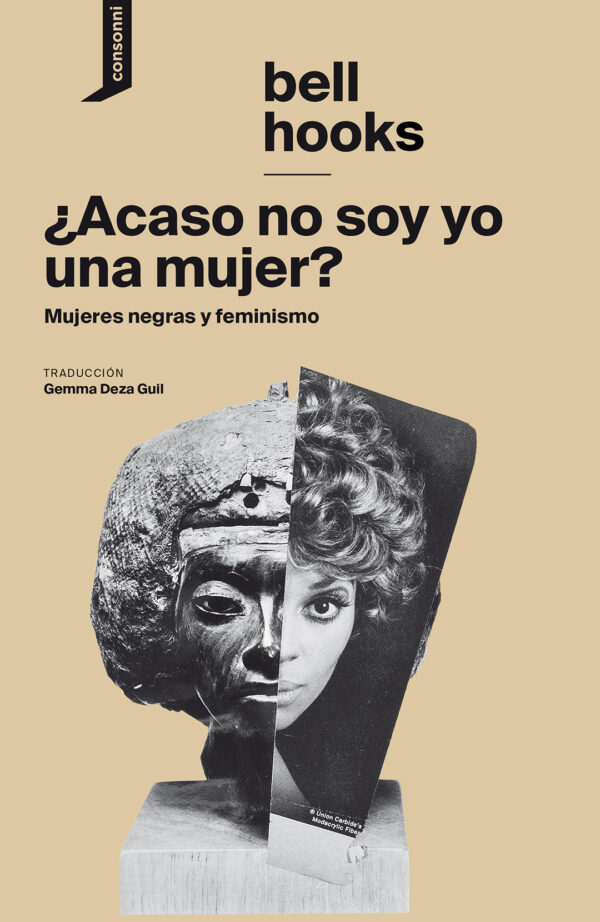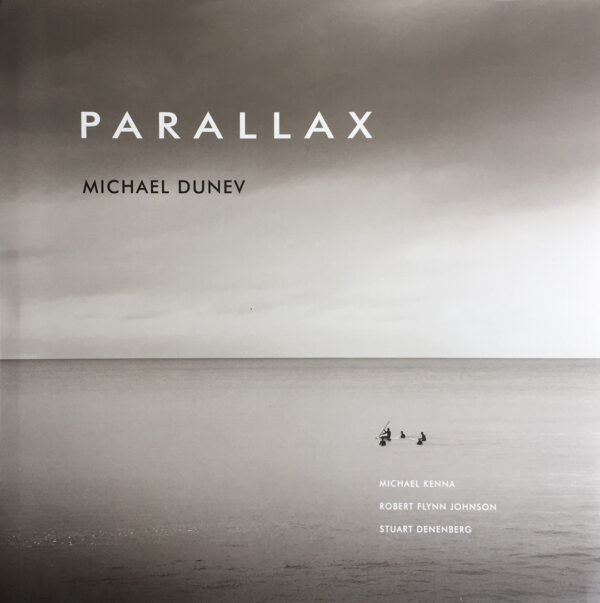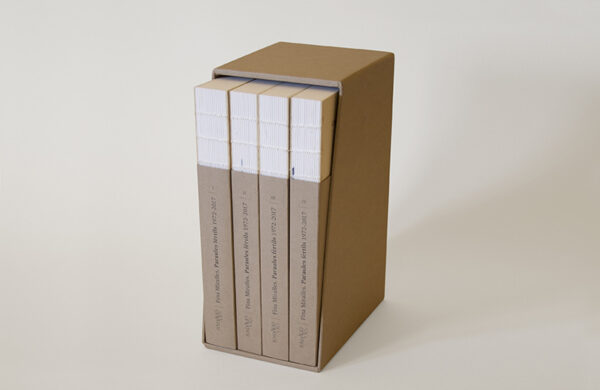Get Mousse #79
In this issue:
Focus on: Vaginal Davis
Vaginal Davis Troubles the Smile
The Royal We
Anarchic Abundance, or, The Art of Living
“Davis’s drag, this reconfigured cross-sex, cross-race minstrelsy, can best be understood as terrorist drag—terrorist in that she is performing the nation’s internal terrors around race, gender, and sexuality.” —José Esteban Muñoz
A foundational figure of the Los Angeles queer and punk scene, Vaginal Davis has performed, written, and inscribed herself into international subcultural networks of queer creatives in music, performance, literature, theater, publishing, and art. Essays by Dodie Bellamy and Amelia Jones and a conversation with Ron Athey retrace her queer feminist fierceness with humor and charm, power and elegance.
After the Great Decentering: What Comes Next?
Trade wars and real wars are redrawing an artistic terrain once defined by globalism. In the concluding chapter of a three-part essay, Pablo Larios argues that this transformation can be seen not in cities, but in rural or extra-urban spaces.
Tiny
“I sit on the edge of the cup my tiny legs barely straddling the rim of the cup. The camera comes close on the gigantic room and the tiny poet looking so intense and confused. My cellphone begins to ring. It’s my girlfriend. If I jump down and stamp real hard on the button I imagine she’ll begin to say hello. I’ll say squeak squeak.” Eileen Myles wakes up suddenly shrunk, the world around huge, in an excerpt from the poet’s novel in progress All My Loves.
Pluto Heart. How Keryon came to Banetown
“New characters were extremely difficult to get, and available old ones were weak and uninteresting. The only real entry spots left were far on the margins, necessitating years of in-weirld commitment even to cross the HeraSea.” An excerpt from Mark von Schlegell’s new novel Pluto Heart, part of his System Series.
The Keepers
In this conversation moderated by Erin Christovale, artists Sadie Barnette and Ja’Tovia Gary discuss Black narratives, legacies, and figures, especially from the 1960s and 1970s. Both are obsessed with roots and origin stories, and take deep dives into their respective family archives as record and time keepers.
The Art of Sinking
“Courted in instances of stuck-ness, malfunction, breakdown, anticlimax, and comedown, the crash, collapse, and short-circuit is a kind of Romantic impulse found not in an awe-inspired claim to success, completion, or achieving a/the ‘whole,’ but in meaning that accumulates in expertly placed rote revelations, in cracks and cavities, lapses in mood, and so tends toward the universal in its infinite delay.” Borrowing from Alexander Pope’s “Peri Bathous, Or the Art of Sinking in Poetry” (1728), Sabrina Tarasoff pens an ode against the serious and the institutionally sanctioned in contemporary art.
Active Listening
By relinking objects and corporeal existence with space, Gabriel Chaile’s work is a powerful intersectional counter-discourse to colonial domination. Manuela Moscoso ponders the Argentinian-born artist’s research and recirculation of pre-Columbian forms so as to relocate himself and his communities in the object of study, thereby configuring new morphologies and allowing new stories to be told.
Parting of the Seas
To Estelle Hoy, Marlene Dumas “takes us on an undetermined journey to the brink of the collective psyche: from the neurotic tics of modernity, schizoid-delusions of racism, to the failed fireworks of seduction. Together and apart, she asks us to pick purple grapes, purple penises, and bruised memories from rows of vineyards in the outskirts of Cape Town, cornbraids of experiences that we don’t want to see, remember, or bring into our waking life.”
